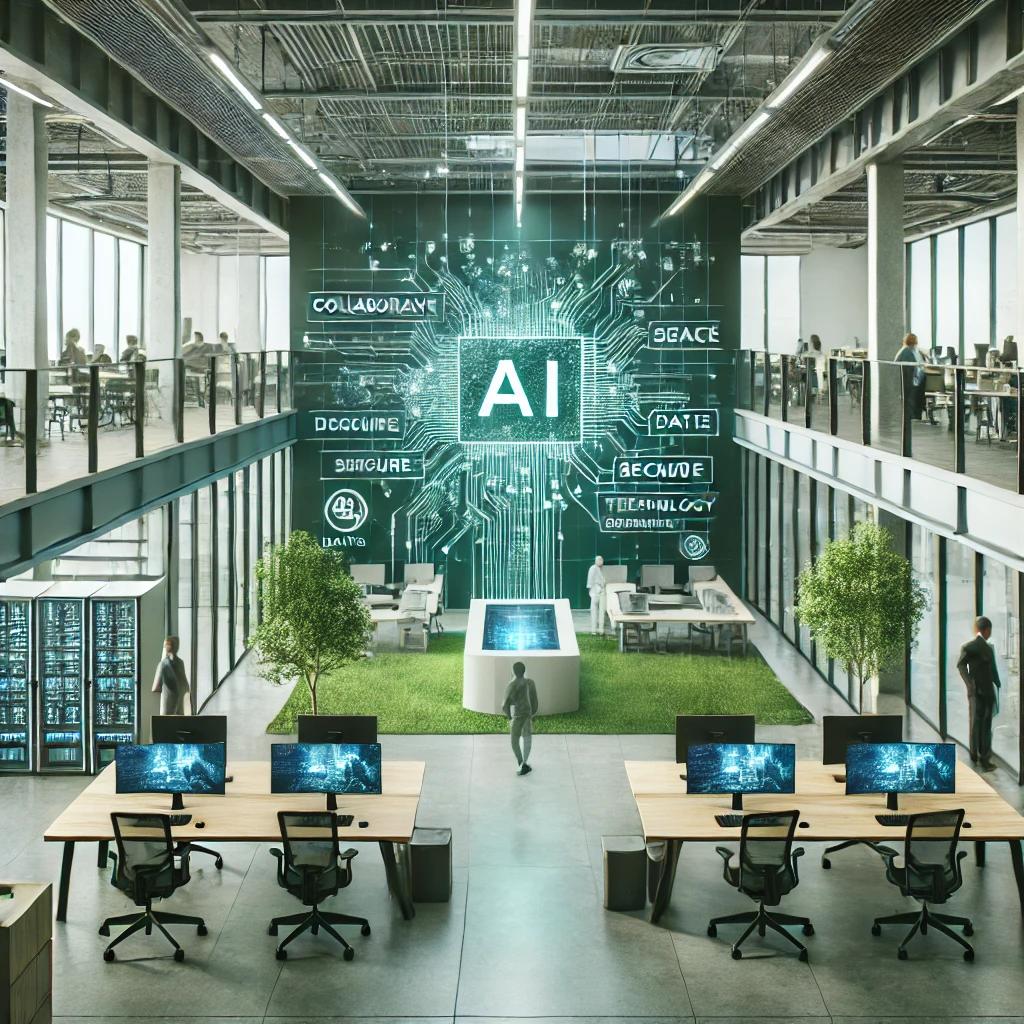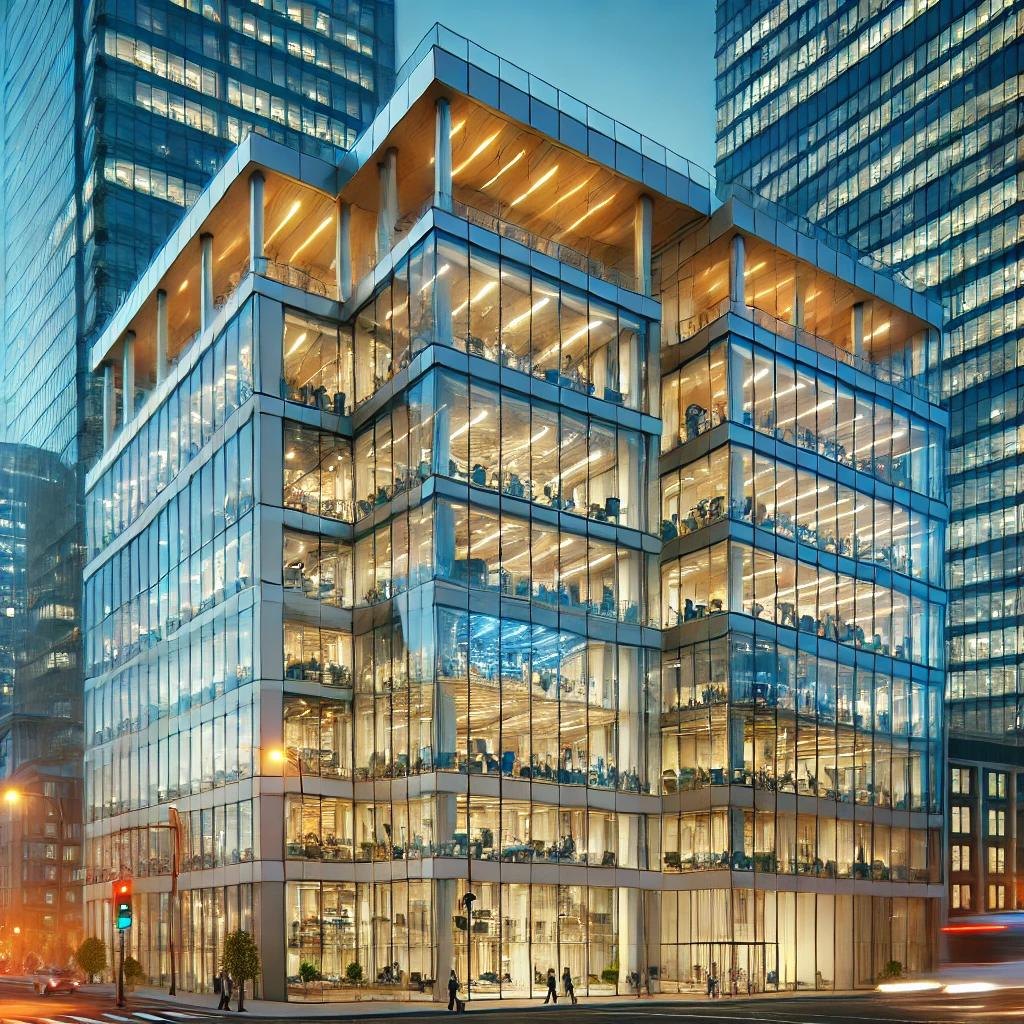The commercial real estate market is evolving fast, and AI companies are at the heart of this transformation. In 2024, tech firms leased a record 9.9 million square feet of U.S. office space in just the third quarter. This represents the highest level in nearly three years (WSJ). AI-driven workplaces are quickly setting new standards in office design and demand, pushing real estate developers to adapt to their needs. Here’s how the rise of AI is changing the commercial real estate landscape.
1. AI Companies Drive High Demand for Office Space
AI firms are in a growth surge, which fuels a strong demand for office spaces that fit their unique needs. Unlike many other tech companies that have embraced remote work, AI companies need physical workspaces to secure data and support high-powered computing. Many AI firms, like OpenAI and Anthropic, require secure environments with controlled access for teams working on confidential projects.
These companies are also pushing a trend back toward centralized workspaces. While many industries move toward flexible and hybrid models, AI companies need spaces designed for intense collaboration and high-level security (Barrons). This demand for specialized office environments sets AI companies apart, creating a new niche in commercial real estate.
2. Adapting Office Spaces to AI Needs
To meet the needs of AI-driven businesses, commercial real estate developers are redesigning office spaces with advanced features. These adaptations include:
- Data capacity and power: AI projects require extensive computing, so spaces need dedicated server rooms and robust data capabilities.
- Enhanced security: AI research is often highly confidential. Offices now include security features like biometric access and secure data storage on-site.
- Collaborative layouts: AI innovation thrives on teamwork, so spaces feature modular layouts, shared work areas, and collaborative spaces.
- Sustainable design: Many AI companies support eco-friendly practices. Developers are using energy-efficient systems and building to LEED certification standards.
Smart office technology is also becoming standard. This includes sensors and AI-driven building systems that improve energy efficiency and create responsive environments. Real estate developers who invest in these updates are positioning their spaces to attract high-tech tenants, making their properties more desirable in a competitive market.

3. The Broader Impact on Commercial Real Estate
AI companies’ demand for specialized spaces is helping revitalize the commercial real estate sector, especially in cities with high office vacancies. Locations like San Francisco and New York, hit hard by remote work trends, are now seeing renewed interest from tech companies. As AI and tech firms snap up spaces, vacancy rates in key urban areas are dropping.
This trend is also driving up property values in tech-friendly regions. Cities with active tech communities—such as Seattle, Austin, and Boston—are seeing more real estate investment as AI firms look for spaces close to talent and resources. These locations are becoming key hubs as urban development follows the tech industry’s lead (Business Insider).
Looking Forward: Opportunities for Businesses and Investors
For businesses, partnering with developers who specialize in AI-ready spaces can be an advantage. Meanwhile, real estate investors can benefit from focusing on properties that attract high-tech tenants. As demand rises, investing in AI-friendly properties could lead to strong returns, especially in growth-driven tech cities.
The trend is clear: AI companies are reshaping the commercial real estate landscape. Their needs for advanced technology, security, and collaboration spaces are setting a new standard. This shift is not only redefining office design but is also bringing a wave of revitalization to commercial real estate.


